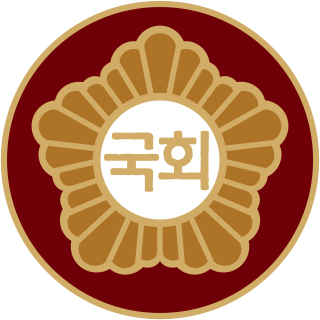Related Research Articles

The iQue Player is a handheld TV game version of the Nintendo 64 console that was manufactured by iQue, a joint venture between Nintendo and Taiwanese-American scientist Wei Yen after China had banned the sale of home video games. Its Chinese name is Shén Yóu Ji (神游机), literally "God Gaming Machine". Shényóu (神游) is a double entendre as "to make a mental journey". It was never released in any English-speaking countries, but the name "iQue Player" appears in the instruction manual. The console and its controller are one unit, plugging directly into the television. A box accessory allows multiplayer gaming.

Video game addiction (VGA), also known as gaming disorder or internet gaming disorder, is generally defined as a psychological addiction that is problematic, compulsive use of video games that results in significant impairment to an individual's ability to function in various life domains over a prolonged period of time. This and associated concepts have been the subject of considerable research, debate, and discussion among experts in several disciplines and has generated controversy within the medical, scientific, and gaming communities. Such disorders can be diagnosed when an individual engages in gaming activities at the cost of fulfilling daily responsibilities or pursuing other interests without regard for the negative consequences. As defined by the ICD-11, the main criterion for this disorder is a lack of self control over gaming.

The video game industry in Mainland China currently is one of the major markets for the global video game industry, where more than half a billion people play video games. Revenues from China make up around 25% of the nearly US$100 billion global video game industry as of 2018, and since 2015 has exceeded the contribution to the global market from the United States. Because of its market size, China has been described as the "Games Industry Capital of the World" and is home to some of the largest video game companies. China has also been a major factor in the growth of esports, both in player talent and in revenue.
Fantasy Westward Journey is a massively multiplayer online role-playing game (MMORPG) developed and operated by the Chinese company NetEase. It was released for the Microsoft Windows platform in December 2001. The game is the most popular online game in China as of May 2007 by peak concurrent users (PCU), with a peak count of 1.5 million. Registered users reached 25 million by April 2005, with 576,000 peak concurrent players on 198 game servers, which was considered the fastest-growing online game in China at the time. Average concurrent users was reported in August 2006 to be around 400,000.

The Youth Protection Revision Act, commonly known as the Shutdown Law or Cinderella Law, was an act of the South Korean National Assembly which forbade children under the age of sixteen to play online video games between the hours of 00:00 and 06:00. The legislature passed the law on 19 May 2011 and it went into effect on 20 November 2011. The law was abolished in August 2021.
LayaBox, also named Laya, is a Chinese-developed freeware framework which includes a web-based game engine named LayaAir which targets mobile and web platforms, as well as online publishing and digital distribution services. First announced on the Global Mobile Game Confederation in March 2015, it offers a feature set for developing multi-platform games.
Duoyi Network, or Duoyi Games, is a Chinese video game company headquartered in Guangzhou, Guangdong. Founded in 2006 by Xu Youzhen, the company is known for developing some of China’s most acclaimed game franchises, including the Shenwu series and the Dream World series. Their most recent projects include the third generation of the Shenwu series Shenwu 3, the cross-platform game for the Dream World franchise Dream World 3D, the 3D MMORPG Eternal Magic, the mobile turn-based RPG Legion of Knights, the multiplayer sandplay SLG Circle of War, and the sandbox RPG Portal Knights.
Mole Manor is a massive multiplayer online game targeted at children ages 6 to 14; there is, however, no specific age or gender restriction on the game. The game was inspired by the online platform Club Penguin, where players can choose cartoon mole-avatars, decorate their virtual homes, adopt pets, and socialize with other players. They can wander through the virtual streets, chat with other users, go shopping, work, and play mini-games.

TiMi Studio Group, a subsidiary of Tencent Games, is a video game development studio group headquartered in Shenzhen, China and offices in Singapore, Montréal, Seattle, Los Angeles, Chengdu, and Shanghai. TiMi generated an estimated revenue of $10 billion USD in 2020. Reportedly, TiMi is the largest video game operator and developer in the world by revenue. Founded in 2008 as Jade Studio, TiMi comprises several development divisions with different areas of expertise and develops games in different genres for PC, mobile, and Nintendo Switch, including Honor of Kings, Arena of Valor, Call of Duty: Mobile, Speed Drifters, and Pokémon Unite.

MiHoYo Co., Ltd., or simply MiHoYo, is a Chinese video game development and publishing company. In addition to games, the company has created various products such as animated series, novels, comics, music, and merchandise.

Ace Racer is an online free-to-play racing game developed and published by NetEase Games and is available for IOS and Android. The game went into public beta in China on 23 July 2021. The global version of Ace Racer has been released on 16 March 2023.
Cai Haoyu is a Chinese businessman, investor, and video game producer. He is best known as the co-founder and CEO of miHoYo, a Chinese game company. The Chinese magazine New Fortune ranked Cai in 73rd place on the "2022 New Fortune 500 Rich List" that ranks the 500 richest people in China.
The Internet real-name system in China is a real-name system in which Internet service providers and Internet content providers in the People's Republic of China are required to collect users' real names, ID numbers, and other information when providing services. Since the implementation of the real-name system on the Internet may lead to the infringement and narrowing of the constitutionally protected speech space of Internet users, it has attracted concerns from all sides and generated much controversy in Chinese society. Only a few countries in the world, such as South Korea, have implemented a real-name system on the Internet.

Kuro Games is a Chinese video game development and publishing company. In addition to games, the company has created various products such as animated series, novels, comics, music, and other merchandise like action figures.
Honkai is a video game franchise developed by miHoYo, published by miHoYo in mainland China and worldwide by Cognosphere, d/b/a HoYoverse. Initially led by Cai Haoyu, David Jiang took over as the series producer from 2017.

Eggy Party is a casual video game developed by NetEase. It was released for Android and iOS platforms on May 27, 2022, with the Nintendo Switch version coming out on July 19, 2024. The game was first released in China, before releasing internationally to selected regions. The game includes various competitive party gameplay. Though the game was developed on a low budget, it was an unexpected success, reaching 30 million daily users, and was the most downloaded game in China at one point in 2023.

HOYO-MiX is a musical group and music studio under miHoYo, primarily responsible for producing songs and soundtracks for various miHoYo games, including the Honkai series, Tears of Themis, and Genshin Impact. The studio is headed by Cai Jinhan, miHoYo's music director.

The Notice of the National Press and Publication Administration on Further Strict Management to Effectively Prevent Minors from Becoming Addicted to Online Games is a document issued by the National Press and Publication Administration on further strict management measures to address the problem of minors' excessive use of, or even addiction to, online games. The notice was issued on 30 August 2021, and sets out requirements for major online games in mainland China regarding anti-addiction mechanisms for minors.

Girls' Frontline: Neural Cloud or Neural Cloud ; pinyin: Shàonǚ qiánxiàn: Yúntú jìhuà or yúntú jìhuà) is a roguelike strategy game from Shanghai Sunborn Network Technology Limited Company(Chinese: 散爆网络); pinyin: Sàn bào wǎngluò) & Mica Team and is a spin-off from Girls' Frontline. It was released for public beta on September 23, 2021.

Liyue is a fictional nation in the video game Genshin Impact, developed by miHoYo. It is located in the eastern part of the game's continent, Teyvat, and serves as the main location for the first chapter of the game's main storyline. The capital city is Liyue Harbor. Liyue worships the concept of "contracts" and its guardian deity was once the Geo Archon "Rex Lapis," also known as Zhongli. The nation is practically governed by the Liyue Qixing. Festivals in Liyue include the Lantern Rite and the Moonchase Festival.
References
- ↑ Pu, Xiaolei (2022-06-03). "新未成年人保护法施行一周年 未成年用户网络游戏使用时长明显降低" [On the first anniversary of the implementation of the new Law on the Protection of Minors, the time spent by underage users in online games has been significantly reduced]. CCTV. Retrieved 2024-04-05.
- ↑ government public information (2023-05-31). "关于启动网络游戏防沉迷实名验证工作的通知" [Notice on launching real-name verification work to prevent addiction to online games]. www.nppa.gov.cn. Retrieved 2024-04-05.
- ↑ jiang, zhi (2006-03-24). "网游防沉迷系统运行在即,家长叫好,行家称绝" [The anti-addiction system for online games is about to be launched, parents applaud and experts praise it]. Archived from the original on 2005-12-20.
- ↑ shen, guangqian (2020-05-23). "网游防沉迷系统发布会专访" [Exclusive interview on online game anti-addiction system press conference]. Archived from the original on 2020-05-23. Retrieved 2024-04-05.
- ↑ shi, jingnan (2021-08-30). "坚决防止未成年人沉迷网络游戏——国家新闻出版署有关负责人就《关于进一步严格管理 切实防止未成年人沉迷网络游戏的通知》答记者问_政策解读_中国政府网" [Resolutely prevent minors from being addicted to online games - the relevant person in charge of the National Press and Publication Administration answered reporters' questions on the "Notice on Further Strict Management and Effectively Preventing Minors from being Addicted to Online Games"_]. www.gov.cn. Retrieved 2024-04-05.
- ↑ beijingsina (2021-09-01). "人民日報評論:動真格!讓青少年遠離網路遊戲沉迷-財經新聞-新浪新聞中心" [People's Daily comments: Get real! Keep teenagers away from online game addiction]. Archived from the original on 2021-09-01. Retrieved 2024-04-05.
- ↑ zheng, rui; wei, wei; zhou, yangyang (2021-09-03). "一周3小時網游最嚴未成年防沉迷出台-科技新聞-新浪新聞中心" [Three hours a week of online gaming is the most stringent rule to prevent minors from becoming addicted]. Archived from the original on 2021-09-03. Retrieved 2024-04-05.
- ↑ hu, xiu (2021-09-01). "游戏行业遭锤,小学生何以成游戏圈"公敌"?_时事-多维客" [The gaming industry has been hammered. Why have primary school students become the "public enemies" of the gaming industry?]. Archived from the original on 2021-09-01. Retrieved 2024-04-05.
- ↑ fa, guang (2024-03-28). "法记者:中国实施最严格的措施打击"网络成瘾"" [French reporter: China implements the most stringent measures to combat “Internet addiction”]. RFI - 法国国际广播电台 (in Simplified Chinese). Retrieved 2024-04-05.
- ↑ li, xin; zhao, yingyan (2016-03-04). "上有"防沉迷"政策 下有"买信息"对策"防沉迷"催热身份证信息交易" [There is an "anti-addiction" policy on the top and a "buy information" countermeasure on the bottom. The "anti-addiction" policy promotes ID card information transactions.]. Archived from the original on 2016-03-04. Retrieved 2024-04-05.
- ↑ liu, xiaodong (2007-07-27). "编造身份证难逃防沉迷" [It’s hard to avoid addiction by making up ID cards]. Archived from the original on 2011-05-23. Retrieved 2024-04-05.